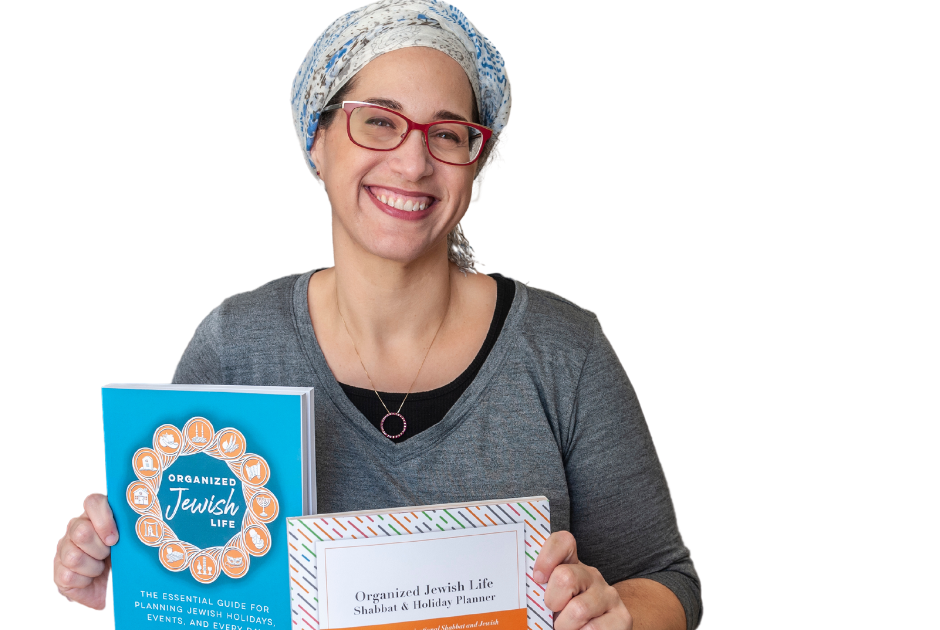Lifestyle
The calmness of a clutter-free life

“Over our lifetime, we spend two years looking for lost objects,” says Rebekah Saltzman, who makes a living helping people declutter their homes.
Professional declutterer Saltzman started her business, Balagan be Gone in 2012 after discovering the world of decluttering and the intersectionality that it could have with modern Jewish life.
“At first, I thought to myself, ‘It’s just about getting things into the right boxes.’ But after time, I realised that’s not the solution to maintaining an organised, clutter-free life. The solution is really to minimise the things you don’t need and curate your best collection of things so that you can find what you need when you need it, and it’s easy for you to get through life day to day,” said Saltzman.
She first looks at what her client has in a specific category, be that clothes or household items, because “if you can’t find all of [your items], how are you going to know what to use and when to use it?”
“The idea is to get all like items together. And then once you can see everything, you’re able to make good decisions about what you’re using and what you’re not using. Because most of the time, people don’t actually know what they have,” she said.
“Most people don’t use 80% of what they have and, even if they do, they aren’t using it 90% of the time. It’s just not possible to use all of your things so frequently,” Saltzman said.
“We have specific things that we use all the time, and the rest of it is just there for special occasions. Especially in a religious house, we have a lot of things that we wouldn’t necessarily have if we weren’t Jewish and that we don’t use all the time anyway. You don’t use your Shabbos candles every day. You don’t use your challah cover every day You don’t use your challah knife every day. You don’t use your Seder plate every week, you use it once a year, right? But you still need to have these things.
“It’s not just about letting go of the things that you’re using only once a year. It’s figuring out what you’re using most of the time so that you can have these other things that are being used only intermittently. Most people come to me and say these are all the clothes they wear. And then the cupboard is full. So, I then ask if they aren’t using anything that’s in the cupboard.”
When it comes to Pesach cleaning, she says, “I’ve noticed that when you declutter before, Pesach cleaning becomes infinitely easier. You don’t need to wait for the last minute. Planning early is what enables you to be more prepared later on.”
In conjunction with her Pesach cleaning challenge, Saltzman has written a book titled, Organized Jewish Life in which she gives tips on how people can plan Jewish holidays, events, and everyday life.
She was inspired to do it when, in 2020, she was unable to sit shiva with the rest of her family due to the Coronavirus pandemic, and her husband suggested that she make a list of everything she needed to do. “I thought about it a little bit more, and realised it’s not just while sitting shiva that people don’t know what to do. People, whether they’re starting their own family and grew up in a Jewish house or whether they’re new to Judaism, often don’t know what to do for most of the Jewish life-cycle events.
“They don’t know how to prepare themselves for Shabbat and Jewish holidays. And what I see with a lot of my clients is the ones who have ADHD [Attention Deficit Hyperactivity Disorder] know how to prepare in theory, but they need something to bring them in and make the process easier.” Saltzman created checklists for Shabbat, all the Jewish holidays, and Jewish life-cycle events.
There’s also a section in which Saltzman advises how to organise other aspects of the Jewish home – this can be anything from setting up a kosher kitchen to managing papers. “Everybody has resistance [to letting go of things] in all areas because when you think something is useful, you don’t want to let it go. When you first start to look for the things that you know aren’t good anymore, then it becomes easier to declutter throughout the categories,” Saltzman said.
For Saltzman, the most difficult category of things people are resistant to decluttering is sentimental items. “Sometimes people feel a lot of guilt. For example, if they throw away a letter from someone they love, they might not remember, or feel it’s like throwing away a part of that person. But our memories aren’t necessarily intertwined with these objects. Letting go of the object isn’t a sign that you’re letting go of the memory.”
Whenever clients finish a session with Saltzman, she senses immense relief. “It’s true that the more stuff you have, the more worry there is. Most people say to me that that’s not true, but it is because even if you aren’t thinking about those specific possessions, you’re thinking about getting your house tidy and organised, and when there’s chaos and clutter, it weighs on you,” she said.
